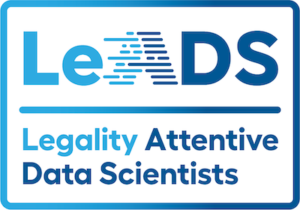Special Edition Blog Series on PhD Abstracts (Part IV)
This post is a continuation of the blog post series on PhD abstracts. You can find the first part of the series here.
Barbara Lazarotto: Business to Government Data Sharing in the EU and the protection of personal data: Making sense of a complex framework.
 Data is a crucial resource that plays an essential role in the economy and society. Yet, due to market failures, data has been often treated as a commodity and held in silos by a few actors, often large companies. In light of recent developments, there have been talks about transferring data from exclusive control of certain groups to making it accessible for public use. The European Union has taken a step in this direction by introducing the “European Data Strategy”, a set of rules and regulations that amongst other objectives, also aimed at making it easier for stakeholders to share data among themselves and with governments. However, this regulatory framework which includes different modalities of business-to-government data sharing is fairly new and the synergy between them is still yet to be seen since many of them may overlap and have possible contradictions.
Data is a crucial resource that plays an essential role in the economy and society. Yet, due to market failures, data has been often treated as a commodity and held in silos by a few actors, often large companies. In light of recent developments, there have been talks about transferring data from exclusive control of certain groups to making it accessible for public use. The European Union has taken a step in this direction by introducing the “European Data Strategy”, a set of rules and regulations that amongst other objectives, also aimed at making it easier for stakeholders to share data among themselves and with governments. However, this regulatory framework which includes different modalities of business-to-government data sharing is fairly new and the synergy between them is still yet to be seen since many of them may overlap and have possible contradictions.
Against this backdrop, there is a pressing need to analyze the current legal and regulatory landscape for business-to-government data sharing in the EU, how they interact with each other, and their possible consequences for the rights of data subjects. The analysis will delve into the complexities of the regulatory conundrum associated with business-to-government data sharing and explore whether the current framework effectively addresses the data subject’s data protection rights as enshrined in the GDPR. Ultimately, this research aims to provide a comprehensive understanding of the legal and regulatory landscape for business-to-government data sharing and its connections with data subject’s rights.
Fatma Dogan: Navigating the European Health Data Space: A Critical Analysis of Transparency Implications in Secondary Data Use under GDPR.
This thesis aims to critically examine the European Health Data Space (EHDS)  proposal, with a specific focus on its secondary use framework and the implications of transparency requirements of the General Data Protection Regulation (GDPR). The research delves into the intricate intersection of EHDS provisions, GDPR transparency requirements, and the proportionality principle. In this context, whether a rights-based approach to privacy regulation still suffices to address the challenges triggered by new data processing techniques such as secondary use of data will be discovered. GDPR’s rights-based approach grants individuals a set of rights and obligation to offer transparency is one of them. However, it is highly unclear how these rights could be able to employ by data subjects under EHDS secondary use framework.
proposal, with a specific focus on its secondary use framework and the implications of transparency requirements of the General Data Protection Regulation (GDPR). The research delves into the intricate intersection of EHDS provisions, GDPR transparency requirements, and the proportionality principle. In this context, whether a rights-based approach to privacy regulation still suffices to address the challenges triggered by new data processing techniques such as secondary use of data will be discovered. GDPR’s rights-based approach grants individuals a set of rights and obligation to offer transparency is one of them. However, it is highly unclear how these rights could be able to employ by data subjects under EHDS secondary use framework.
Xengie Doan: Tools and Methods for User-Centered, Legal-Ethical Collective Consent Models: Genomic Data Sharing.
 Health data is sensitive and sharing it could have many risks, which is especially true for genetic data. One’s genome might also indicate physical or health risks that could be used for more personalized healthcare or personalized insurance premiums. These risks affect not only the individual who has initially consented to the collection and sharing, but also those who may be identified from the DNA, such as genetic relatives or those who share a genetic mutation. How can relevant individuals come together to consent to genetic data sharing? Collective consent stems from indigenous bioethics where indigenous tribes fought for their right to consent to biomedical research as a community, not just as individuals. It has been used in research partnerships with indigenous groups to improve stakeholder involvement instead of treating indigenous populations as test subjects. Though it has been proposed, no digital collective consent (wherein multiple individuals consent in different via different governance structures such as families or tribal leader) exists for the general public. Challenges span legal-ethical issues and technical properties such as transparency and usability. In order to build collective digital consent to meaningfully address real world challenges, this work uses genetic data sharing as a use case to better understand what tools and methods can enhance a user-friendly, transparent, and legal-ethically aware collective consent. I conducted a theoretical and empirical study on collective consent processes for health data sharing. First, we explored the privacy and biomedical gaps in collective consent, as it has not been implemented widely outside of indigenous populations. Then I surveyed user goals and attitudes towards engaging elements within different consent mediums, then I analyzed the transparency and user-relevancy of policies from notable DTC genetic testing companies to find gaps in. Last, I validated the framework for transparent, user-centered collective consent with a use-case with a company in Norway.
Health data is sensitive and sharing it could have many risks, which is especially true for genetic data. One’s genome might also indicate physical or health risks that could be used for more personalized healthcare or personalized insurance premiums. These risks affect not only the individual who has initially consented to the collection and sharing, but also those who may be identified from the DNA, such as genetic relatives or those who share a genetic mutation. How can relevant individuals come together to consent to genetic data sharing? Collective consent stems from indigenous bioethics where indigenous tribes fought for their right to consent to biomedical research as a community, not just as individuals. It has been used in research partnerships with indigenous groups to improve stakeholder involvement instead of treating indigenous populations as test subjects. Though it has been proposed, no digital collective consent (wherein multiple individuals consent in different via different governance structures such as families or tribal leader) exists for the general public. Challenges span legal-ethical issues and technical properties such as transparency and usability. In order to build collective digital consent to meaningfully address real world challenges, this work uses genetic data sharing as a use case to better understand what tools and methods can enhance a user-friendly, transparent, and legal-ethically aware collective consent. I conducted a theoretical and empirical study on collective consent processes for health data sharing. First, we explored the privacy and biomedical gaps in collective consent, as it has not been implemented widely outside of indigenous populations. Then I surveyed user goals and attitudes towards engaging elements within different consent mediums, then I analyzed the transparency and user-relevancy of policies from notable DTC genetic testing companies to find gaps in. Last, I validated the framework for transparent, user-centered collective consent with a use-case with a company in Norway.






 Mitisha Gaur: Re-Imagining the Interplay Between Technical Standards, Compliances and Legal Requirements in AI Systems Employed in Adjudication Environments Affecting Individual Rights
Mitisha Gaur: Re-Imagining the Interplay Between Technical Standards, Compliances and Legal Requirements in AI Systems Employed in Adjudication Environments Affecting Individual Rights



